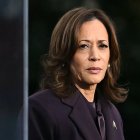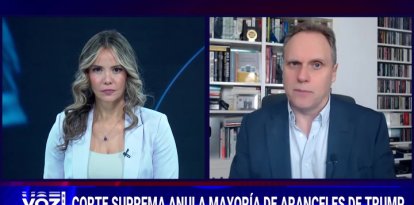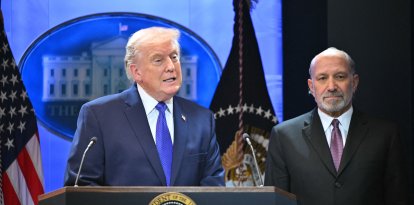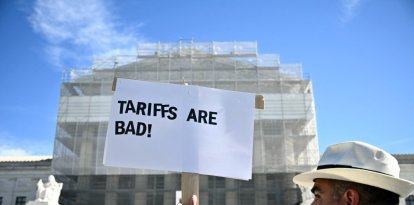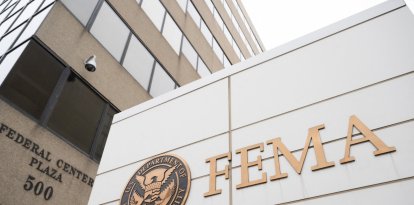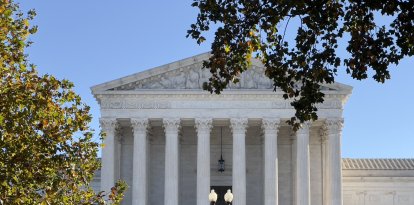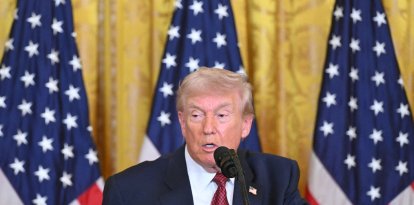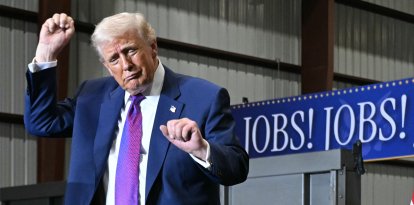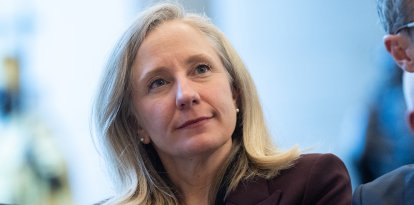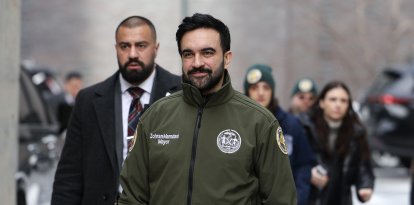'Censorship industrial complex' prepares for Trump's arrival
The appointment of Brendan Carr to the FCC and the rapprochement of technology CEOs such as Zuckerberg, Sundar Pichai and Tim Cook shed light on the president-elect's future anti-censorship policy.

President elect Donald Trump
The Trump Administration promised to dismantle the censorship industrial complex, the name by which Republicans dubbed the alliance of academia, NGOs and social networks that helped the Biden administration censor conservative speech.
"I’m pretty fuc**** scared," a professor who is an expert in disinformation recently said to Politico. The newspaper did not reveal his name or position, "due to fears of retribution." He even assured that, should his fears come true, he would leave the country.
According to the same report, several universities abandoned or changed the focus of their research groups on disinformation. Some researchers, it also claims, have sought help from the Research Support Consortium, an organization that offers advice on "coordinated campaigns of intimidation and harassment in response to their important public-facing work."
This research would have served to support Administration policies, as OpenTheBooks recently explained: "Although much of this research is academic, it is often intended to lay the groundwork for public interventions." The government monitoring group revealed that the White House spent $267 million on investigating disinformation.
Although during his first term Donald Trump increased these grants (far less than Biden), during his second he could use it to fulfill his promise on censorship.
As a series of internal emails released by the House Judiciary Committee revealed, the government was pressuring social networks to remove content branded by academic or state researchers as disinformation. Twitter (now X) was one of the first to sound the alarm when Elon Musk acquired the company. The latest was Mark Zuckerberg, who publicly regretted giving in to the administration's bullying.
"A warrior for Free Speech"
The choice of Brendan Carr as chairman of the Federal Communications Commission (FCC), whom Trump defined as "a warrior for Free Speech," appears to be the first step in his free speech policy.
Carr, an agency veteran who is currently the top Republican member of the FCC, was first nominated to the commission by Trump in 2017. During his tenure as FCC commissioner, he waged a public crusade against TikTok, calling it a threat to the privacy of US users. He also harshly criticized Big Tech, claiming that its restrictive policies were on par with those of a tech cartel.
In an interview with FOX after his appointment, he argued that his first goal is "to smash the censorship cartel." The second, the media: "You look at Jeff Bezos. He recently did an op-ed where he said trust in media is at an all-time low. And there's a lot the FCC can do there to make sure that broadcasters are, in fact, serving the public interest."
A week ago he sent a letter to the CEOs of Alphabet, Microsoft, Meta and Apple to forward information to him about their collaboration with the "Orwellian" NewsGuard organization, "a for-profit company that operates as part of the broader censorship cartel."
Social media flip-flopping
The platforms have changed their typically confrontational tone with Trump. The back and forth during his first term culminated after Jan. 6 when Twitter, Facebook, Instagram, Snapchat, among others, shut down accounts of or associated with the former president.
The most obvious change occurred on Twitter. Musk, who came to the company promising to 'free the bird', handed internal documents to journalists that revealed the social network's progressive tendencies in what became known as the Twitter Files. Soon after, he grew closer to Trump, even campaigning for him, participating in his inner circle, heading a department in his administration and even celebrating Thanksgiving together at Mar-a-Lago.
Meta has also tried to cool tempers. After his public mea culpa, the same Zuckerberg who blocked Trump's Facebook account tried to detach himself from politics. Adopting a neutral and, as he apparently says himself, "libertarian" profile. This new stance included phone conversations with the Republican and a one-on-one this week, although it's worth remembering that during the campaign Trump warned him that if he cheated in the elections again he could "spend the rest of his life in prison."
The owners of the big tech companies seem to be betting that improving their personal relations with the Republican may serve to cushion or even avoid the blow of his anti-censorship policy. In the home stretch of the presidential race, the president-elect said he had spoken on the phone with the CEOs of Google and Apple, Sundar Pichai and Tim Cook. CNN also revealed a conversation with Andy Jassy, CEO of Amazon.





